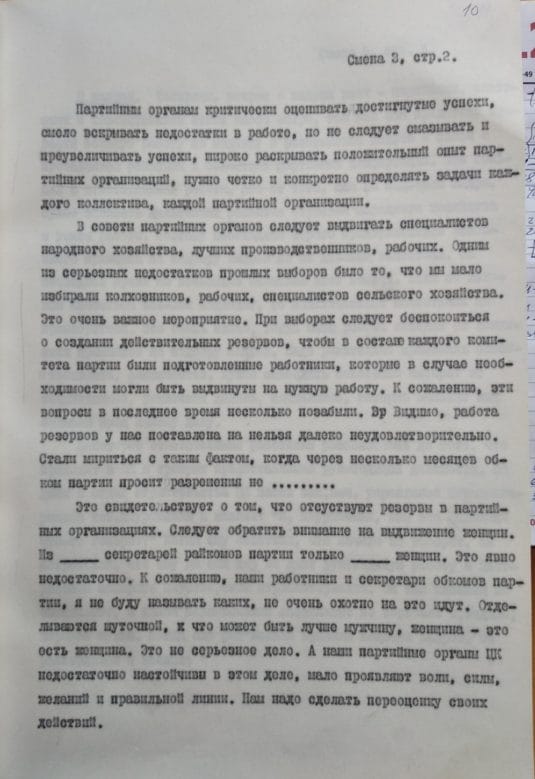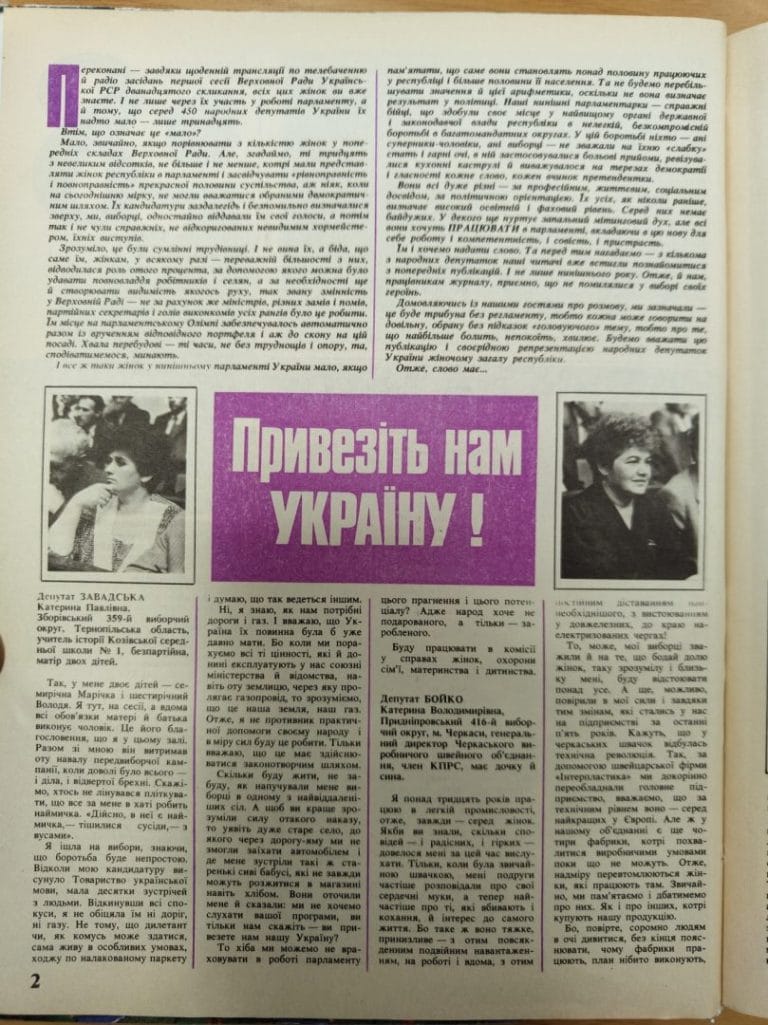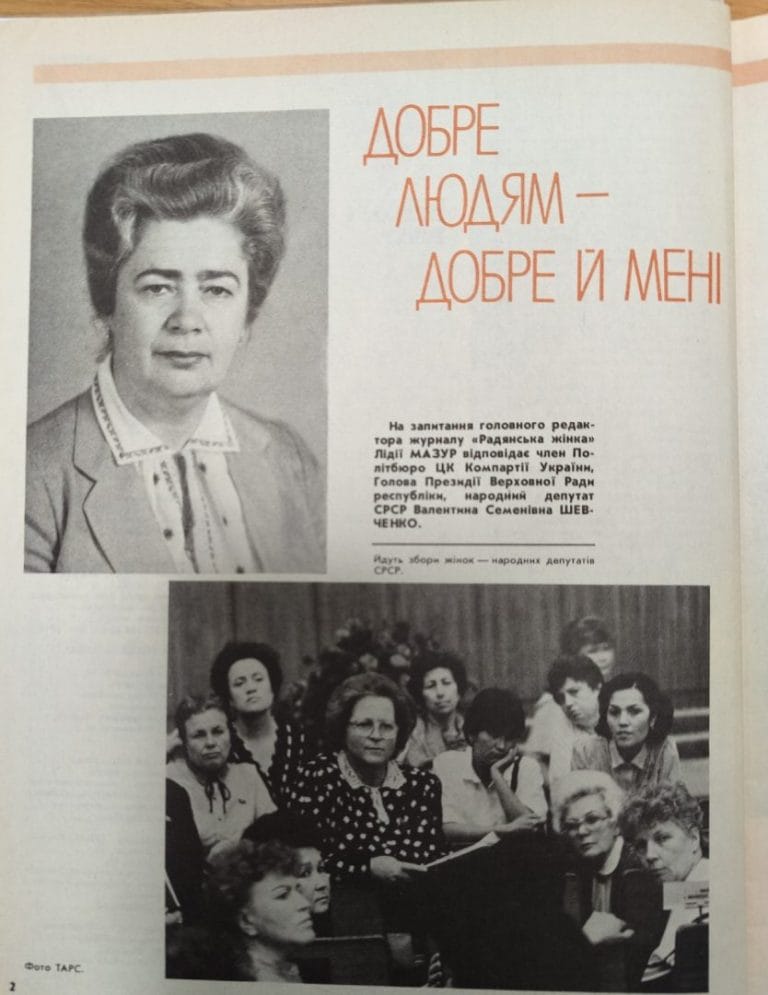Transcript of a meeting with first secretaries of oblast party committees, heads of oblast executive committees, and heads of ministries and departments of the republic, November 25, 1977. Excerpt
[…]
“At the end of next year, district and city party conferences will take place, and we must begin now to carefully consider all personnel-related matters and the creation of reserves.
I believe, comrades, that these issues should be addressed directly by the first secretaries.
The issue at hand is the selection and nomination of women to the reserve. Just look—we are sitting here, one hundred of us, and there is only one woman among us: Dina Lvovna, Iosifovna. We should be ashamed of ourselves, having taken everything into our own hands. There is not a single woman secretary in the Central Committee. Out of nine deputies in the Council of Ministers, not one is a woman—and we have already come up with something there.
Comrade Osad, the president of Syria, visited. The three of us talked. He asked, ‘How many ministries do you have?’ Alexander Pavlovich replied, ‘Forty-six ministries, committees; that’s how many we have in the government.’ ‘And how many female ministers do you have?’ And he says, ‘We have two women ministers.’ In Syria, there are two women ministers. We don’t have a single one—is that right? I am speaking here first and foremost in a spirit of self-criticism.
But I want each of you to take a look at yourselves—in your districts, in your cities. I believe, comrades, that in consumer services, health care, education—and in fact, in any field: food industry, light industry, wherever possible—we must be bolder in promoting women.
None of you can honestly say that women work worse than we do. But since you have seized all the power for yourselves, no one else can move forward.”
[…]





At a meeting with the heads of the Communist Party of Ukraine and state bodies, as well as regional leaders, current issues of the republic and planning for 1978 were discussed. After several speakers, the First Secretary of the Central Committee of the CPU, Volodymyr Shcherbytskyi, took the floor. Listing shortcomings in the current implementation of economic plans and in planning for the coming year, he called on those present to consider candidates for election at the upcoming party conferences and to create a reserve of personnel, particularly among women. Among the one hundred people present at the meeting, there was only one woman — Domnikiia Yosypivna Protsenko, head of the Kherson Regional Executive Committee.
The impetus for raising the issue of male dominance and discrimination against women in leadership positions was a meeting between the Ukrainian leadership and a Syrian delegation the day before. According to Hafez al-Assad, in Syria, women headed two ministries. Recalling this meeting as one that opened Volodymyr Shcherbytskyi’s eyes to the absence of women in leadership, his aide Vitalii Vrublevskyi testified that there were six female ministers in Syria (Vrublevskyi V.K. Volodymyr Shcherbytskyi: Pravda i vymysly: Zapiski pomoshchnika: Vospominanyia, dokumenty, slukhi, lehendy, fakty. Kyiv: Dovira, 1993, 50–51). Urging the leaders present to “more boldly promote women,” Shcherbytskyi listed “their” areas: public services, healthcare, education, food, and light industry.
In the concluding part of the meeting, no demands were voiced regarding the improvement of women’s representation in government bodies.